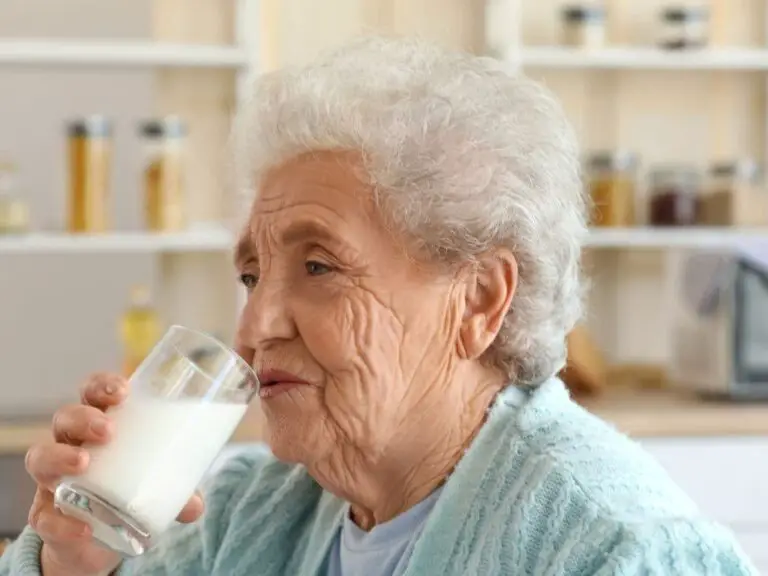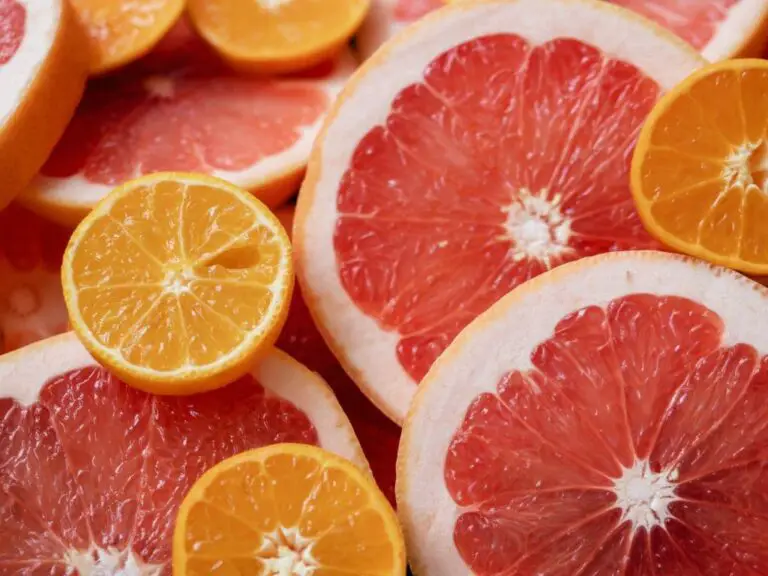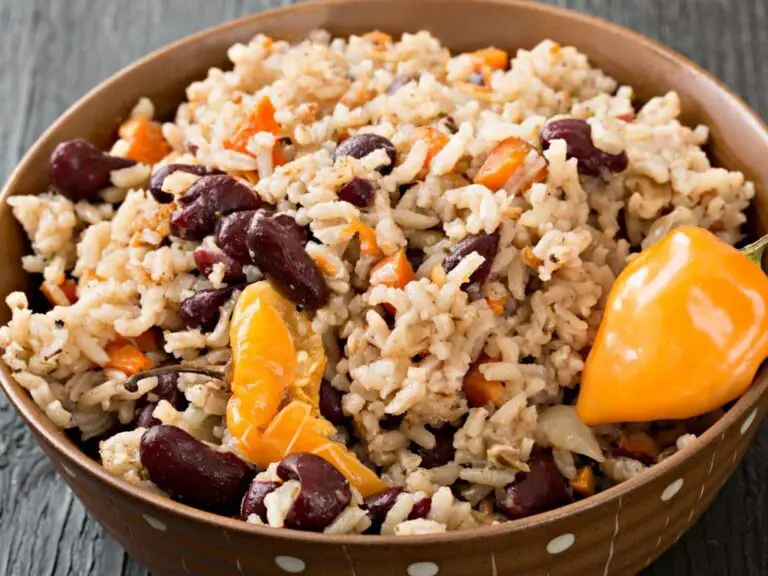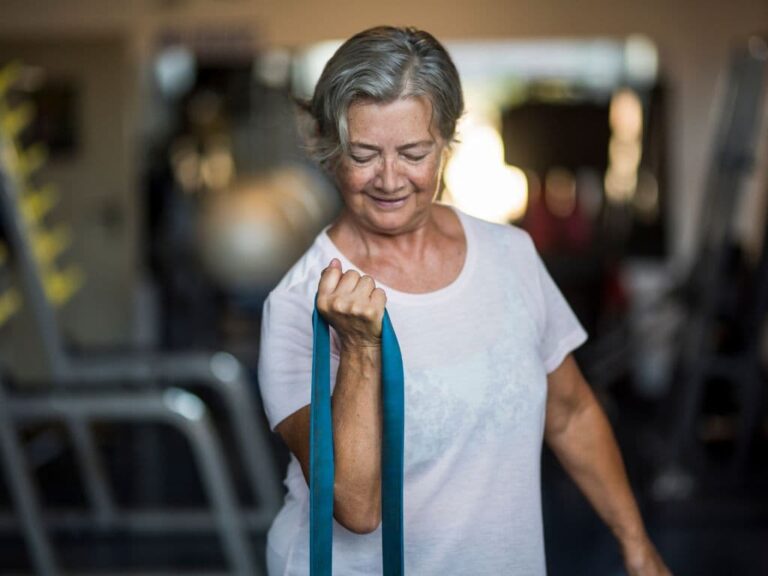What Is the Best Weight Loss Program for People Over 60?
Are you over 60 and looking for an effective way to shed unwanted pounds? You’re not alone—in fact, maintaining a healthy weight is a common challenge in older adults.
What is the best weight loss program for people over 60? The Mediterranean diet is often recommended as the best weight loss program for people over 60. It focuses on consuming fruits, vegetables, whole grains, legumes, and healthy fats, providing essential nutrients for overall well-being. Coupled with regular exercise, hydration, and stress management, this diet supports sustainable weight loss and improved health in seniors.

In this article, we will guide you through the maze of diet plans, exercise programs, and other strategies specifically tailored for people in your age group.
What Are the Factors to Consider When Choosing a Weight Loss Program for People Over 60?
Weight loss programs for people over the age of 60 should prioritize adequate nutrition. Seniors’ diets need to feature essential nutrients such as calcium, fiber and vitamin D that are critical for bone health, digestion, and disease prevention respectively.
It’s also important to set achievable weight goals while adhering to a chosen program.
Muscle mass tends to decrease with age, hence protein intake becomes crucial in seniors’ diet plans in order to preserve it. Good brain health plays a vital role too; minimizing cognitive decline is necessary when planning meals or snacks so methods promoting mental agility should be incorporated.
Diabetes management or prevention along with maintaining heart health should likewise weigh heavily on any diet plan consideration. A focus on foods that control blood sugar levels and sustain a healthy heart can ensure overall wellbeing.
Keeping hydrated not only aids digestion but also helps conserve energy which can dwindle as we age. And finally, motivation remains key: an effective weight loss program needs to show tangible results enough to keep one motivated through their journey towards healthier living after 60!
Sufficient nutrition
In the journey of weight loss, maintaining sufficient nutrition plays a vital role, especially for people over 60. As metabolism slows down with age, it’s essential to absorb the right nutrients to stay healthy and active.
A diet rich in potassium, calcium, vitamin D, dietary fiber ensures overall well-being while aiding effective weight loss goals. It’s not about cutting back on food but prioritizing nourishing options instead.
Proper hydration is equally crucial as older adults may not always realize their thirst cues meaningfully due to age-related physiological changes. Be mindful of drinking enough fluids throughout the day that contributes positively towards achieving optimum health goals along with weight management benefits.
Consulting with a healthcare professional or registered dietitian can assure personalized nutritional guidance tailored as per individual needs and conditions.
Realistic weight goals
Achieving healthy weight loss after age 60 calls for setting realistic goals. Aiming for a BMI ranging from 25 to 27 may be more suitable than striving for the “normal” range of 18.5-24.9 that applies to younger individuals.
This provides a balanced approach, considering factors such as metabolism changes and health conditions common in seniors.
Weight loss can indeed be more challenging as we age but changing eating habits and incorporating regular exerciseinto your daily routine can aid in steady weight reduction. Gradual changes often yield long-term results, thus underscoring the importance of patient persistence while pursuing weight loss goals over time.
Protein and muscle mass
Protein is essential for maintaining muscle mass, especially as we age. As older adults, we are at a higher risk of experiencing the gradual loss of lean muscle tissue. This can lead to weakness and decreased mobility.
Consuming enough protein in our diet helps prevent this muscle loss and keeps us strong and active. Including high-protein foods like lean meats, poultry, fish, beans, and dairy products in our meals can make a significant difference in preserving our muscle function as we get older.
So let’s prioritize protein to support our muscle health!
Key nutrients (calcium, vitamin D, fiber)
Seniors need to pay attention to key nutrients like calcium, vitamin D, and fiber. Calcium and vitamin D are crucial for maintaining strong bones, which becomes increasingly important as we age.
Vitamin D also helps the body absorb calcium effectively. Fiber is essential for promoting healthy digestion and preventing constipation in older adults. If it’s difficult to get enough of these nutrients through food alone, dietary supplements can help meet their needs.
Brain health
Maintaining brain health is important as we age. A healthy diet can play a vital role in supporting cognitive function. For seniors, specific nutritional needs are necessary to promote brain health.
Diets like the MIND, DASH, and Mediterranean diets are known to have brain-boosting benefits. Regular exercise is also recommended for maintaining optimal brain health.
Diabetes prevention and management
Participating in a CDC-recognized lifestyle change program can help seniors prevent or manage diabetes. Losing a modest amount of weight, about 5-7% of body weight, and incorporating 150 minutes of exercise per week can significantly reduce the risk of developing diabetes.
The DPP (Diabetes Prevention Program) has shown that making these lifestyle changes can delay or even prevent the onset of type 2 diabetes for high-risk individuals. For those already living with type 2 diabetes, losing weight has many benefits including better control over blood sugar levels.
While a low GI (Glycemic Index) diet may be helpful in managing blood sugar levels, its effectiveness specifically for weight loss is still limited.
Heart health
Maintaining heart health is crucial for individuals over 60. Weight gain can increase the risk of heart disease by raising blood cholesterol and pressure. However, even a small amount of weight loss can have significant benefits for the heart and blood vessels.
One effective way to promote heart health is through the DASH diet, which has been shown to reduce risk factors such as obesity, high blood pressure, and cholesterol levels. Another important aspect of heart health is avoiding diets high in added sugars, as they can lead to obesity, tooth decay, fatty liver, and an increased risk of heart disease.
It’s essential to prioritize proper nutrition and weight management in order to maintain a healthy heart later in life.
Hydration
Staying hydrated is extremely important for seniors who are trying to lose weight. As we age, our bodies become more prone to dehydration due to decreased thirst levels and changes in body composition.
However, proper hydration is crucial for weight loss because it can increase feelings of fullness and reduce hunger. In fact, research has shown that being well-hydrated can improve overall body functions, including thinking and the burning of body fat.
Additionally, staying properly hydrated has been linked to a longer and healthier life, potentially slowing down the aging process and reducing the risk of disease. So remember to drink plenty of water throughout the day and include high-fiber foods in your diet to maintain good digestive health and prevent dehydration as you work towards your weight loss goals.
Energy conservation
Maintaining an appropriate energy balance is crucial for managing weight as we get older. In fact, around 60-80% of weight gain in individuals over 60 can be attributed to an imbalance between the calories consumed and expended.
Therefore, it is important to focus on energy conservation techniques that can help minimize muscle fatigue, joint stress, and pain. By incorporating these techniques into our daily routine, we can ensure better overall health and well-being.
Increasing physical activity levels can also play a significant role in burning more calories and promoting higher energy expenditure among seniors.
Motivation and results
Maintaining motivation is key to achieving successful weight loss results for seniors. Staying focused and committed to your weight loss program can help you reach your goals and maintain a healthy lifestyle.
It’s important to find the right balance between realistic expectations and staying motivated throughout the journey. Remember, appearance-related motivations may lead to higher engagement in the program but might not always result in significant weight loss.
Instead, focus on long-term self-regulation and making sustainable changes that work for you. By staying motivated and committing to a weight loss program tailored for seniors, you can achieve positive results for both your physical health and overall well-being.
In addition, combining exercise with dietary changes has been shown to be effective in promoting weight loss and treating frailty in older adults. Regular physical activity not only helps burn calories but also improves muscle mass, bone health, heart health, brain function, and overall mobility.
Engaging in activities that are enjoyable such as walking or swimming can help keep you motivated while reaping the benefits of increased energy levels and improved quality of life.
What are the Different Types of Weight Loss Programs Available for Seniors?
Several different types of weight loss programs are available for seniors. One option is the DASH diet, which focuses on eating fruits, vegetables, whole grains, lean proteins, and low-fat dairy products.
Another popular choice is the Mediterranean diet, which emphasizes consuming plenty of fruits, vegetables, whole grains, legumes, and healthy fats like olive oil. For those looking to reduce carbohydrate intake and increase fat consumption, the keto diet may be worth considering.
This diet involves minimizing carbohydrates while increasing healthy fats to encourage the body to enter a state of ketosis. There are programs like WeightWatchers that offer flexibility in food choices and portion control guidelines.
It’s essential to find a weight loss program that suits your preferences and health needs as you strive to achieve your goals.
DASH diet
The DASH diet is a popular weight loss program that focuses on lowering high blood pressure. It involves consuming foods that are rich in potassium, calcium, and magnesium. Studies have shown that people can lose weight while following the DASH diet.
Additionally, this diet has been linked to lower risks of developing type 2 diabetes. To follow the DASH diet, seniors should aim to eat plenty of fruits, vegetables, whole grains, low-fat dairy products, and lean proteins.
This diet also encourages reducing salt intake and staying hydrated. By incorporating the principles of the DASH diet into their eating habits, seniors can improve their heart health and overall well-being.
Keto diet
The keto diet is a high-fat, low-carbohydrate eating plan that has gained popularity in recent years. It involves drastically reducing your carbohydrate intake and replacing it with healthy fats.
This dietary shift puts your body into a state of ketosis, where it burns fat for fuel instead of carbohydrates. The keto diet has been praised for its ability to promote weight loss and improve overall health.
In fact, U.S. News & World Report named it one of the best diets in 2023. For seniors looking to lose weight safely and effectively, following a specific meal plan designed for their needs can help them navigate the keto diet successfully.
Mediterranean diet
The Mediterranean diet is a popular and healthy option for seniors looking to lose weight. This diet focuses on whole, unprocessed foods that are rich in nutrients. It emphasizes fruits, vegetables, whole grains, legumes, olive oil, and nuts.
These foods provide essential vitamins and minerals that support brain health, heart health, and overall wellbeing. Following the Mediterranean diet has been linked to lower all-cause mortality and improved mental health in elderly individuals.
Additionally, it can help reduce the risk of developing Alzheimer’s disease. With its focus on fresh ingredients and balanced meals, the Mediterranean diet is an excellent choice for seniors who want to prioritize their health while shedding pounds.
Flat Belly Diet
The Flat Belly Diet is a weight loss program that focuses on reducing belly fat by incorporating monounsaturated fats and following a calorie-controlled meal plan. This diet emphasizes consuming nutritious meals to promote a flatter stomach.
However, it’s important to note that there are currently no studies linking the Flat Belly Diet with long-term weight loss. On the other hand, the Mediterranean diet, which shares similarities with the Flat Belly Diet, has been associated with lasting weight loss results.
Following a meal plan that includes foods shown to decrease belly fat can be beneficial for seniors aiming to lose weight effectively and safely.
Paleo diet
The Paleo diet is a popular option for weight loss among seniors. It focuses on consuming lean meats, fish, eggs, vegetables, fruits, berries, nuts, avocado, and olive oil. Compared to other diets, the Paleo diet provides less protein and fat but more carbohydrates.
Short-term studies have suggested that following the Paleo diet can help with weight loss and manage blood pressure. In fact, a study involving obese women aged 60 and over found that both the Paleo diet and a low-fat high-fiber diet resulted in weight loss over 24 months.
So if you’re looking to shed some pounds while still enjoying delicious meals packed with natural ingredients, the Paleo diet may be worth considering.
Flexitarian Diet
The flexitarian diet is a flexible eating approach that combines the principles of vegetarianism with occasional consumption of meat and other animal products. It emphasizes whole, plant-based foods while allowing for some flexibility when it comes to including small amounts of fish, poultry, and red meat.
Research suggests that following a flexitarian diet can lead to a lower body mass index (BMI) and reduced rates of obesity. In fact, the flexitarian diet has been ranked as the #2 Best Diet Overall on U.S. News Best Diet Rankings.
It also provides various health benefits and supports weight management, making it a promising option for seniors looking to improve their dietary habits.
Ornish diet
The Ornish diet is a popular choice for seniors looking to lose weight and improve their overall health. This vegetarian diet focuses on reducing fat intake, particularly saturated fats found in animal products.
By following the Ornish diet, seniors can decrease their risk of heart disease and other chronic conditions. The emphasis is not on calorie counting, but rather on consuming foods that are rich in anti-cancer, anti-heart-disease, and anti-aging properties.
In fact, the Ornish diet has been compared to the Mediterranean diet due to its focus on reducing fat intake. So if you’re looking for a weight loss program that prioritizes your heart health and longevity, the Ornish diet may be worth considering.
Intermittent fasting
Intermittent fasting is a weight loss strategy that involves eating during specific time periods and fasting for the rest. It has been associated with weight loss and improved health for older adults.
Limited evidence exists on how fasting specifically affects individuals over 60, but a study on female subjects in this age group found positive changes in body composition after a six-week intermittent fasting intervention.
For seniors, intermittent fasting can also lead to improved blood sugar levels and reduced risk of obesity-related diseases. Combining intermittent fasting with regular physical activity further lowers these risks.
HMR program
The HMR program is an effective and fast weight loss program that promotes healthy lifestyle strategies for seniors. It focuses on the consumption of HMR food replacements like shakes, nutrition bars, and low-calorie prepackaged meals, along with a variety of fruits and vegetables.
Research has shown that meal replacement programs like HMR are three times more effective than traditional diets for weight loss. The HMR program is offered by Providence health system and their meals are readily available for sale.
By following this program, seniors can achieve their weight loss goals while maintaining a balanced diet and improving overall health.
Volumetrics diet
The Volumetrics Diet is a safe and effective weight loss program for seniors. It focuses on consuming low-calorie, nutrient-dense foods that help individuals feel satisfied while reducing calorie intake.
The diet emphasizes eating high-volume portion sizes of fruits, vegetables, whole grains, and low-fat dairy. By prioritizing these foods, seniors can eat more without consuming excessive calories.
The Volumetrics Diet is considered a long-term and sustainable approach to healthy eating, making it an ideal choice for seniors looking to lose weight safely and effectively.
How to Choose the Best Weight Loss Program for People Over 60
- Consider your nutritional needs and choose a program that provides sufficient nutrition for your body’s requirements.
- Set realistic weight loss goals that are achievable and safe for your age and health condition.
- Look for programs that emphasize the importance of protein and muscle mass to help maintain strength and metabolism.
- Choose a program that includes key nutrients like calcium, vitamin D, and fiber to support bone health and proper digestion.
- Opt for a program that promotes brain health through the inclusion of foods rich in antioxidants and omega-3 fatty acids.
- If you have diabetes, select a weight loss program that helps with prevention or management of the condition.
- Prioritize heart health by choosing a program that encourages a balanced diet low in saturated fats and high in fruits, vegetables, and whole grains.
- Ensure the program highlights the importance of staying hydrated throughout the day to support overall well-being.
- Consider your energy levels when choosing a weight loss program and opt for one that helps conserve energy while still promoting physical activity.
- Look for programs that provide motivation, support, and proven results to keep you motivated on your weight loss journey.
- Try out different types of weight loss programs available for seniors such as the DASH diet, Mediterranean diet, or intermittent fasting to find what works best for you.
- Consult with a healthcare professional before starting any weight loss program to ensure it is safe and suitable for your specific needs.
Stop writing
What are the Challenges of Losing Weight as You Age?
Losing weight can become more challenging as we age. One of the main challenges is the loss of muscle mass that naturally occurs with aging. This decrease in muscle mass can slow down our metabolism, making it harder to burn calories and lose weight.
Additionally, the incidence of obesity tends to increase in individuals in their forties to fifties, which means there may be more weight to lose.
Another challenge is that measuring body fat accurately becomes more difficult as we get older. Traditional methods such as BMI (body mass index) may not account for changes in body composition that occur with age, such as an increase in body fat and a decrease in muscle mass.
Furthermore, lifestyle and physiological factors come into play when trying to lose weight after the age of 50. Our energy needs typically decline as we get older due to a decrease in physical activity levels and changes in hormone production.
This means that even if we consume fewer calories than before, our bodies might not respond by shedding excess weight as easily.
Despite these challenges, regular exercise remains an important tool for weight loss among older adults. It can help maintain or build muscle mass while boosting metabolism and burning calories.
However, it’s crucial to choose exercises appropriate for your fitness level and any health conditions you may have.
In conclusion, losing weight can be more challenging as we age due to factors such as muscle loss, difficulties measuring body fat accurately, changing energy needs, and slower metabolic rates.
However, adopting healthy lifestyle habits like regular exercise tailored for seniors can still lead to successful weight loss outcomes.
How Can I Prevent Weight Regain After Losing Weight?
Preventing weight regain after losing weight is crucial for seniors. Here are some strategies to help you maintain your weight loss:
- Stay active: Regular exercise can help you burn calories and maintain muscle mass, which is important for preventing weight regain. Aim for at least 150 minutes of moderate-intensity activity each week.
- Make healthy food choices: Opt for nutrient-dense foods like fruits, vegetables, whole grains, and lean proteins. These foods are low in calories but high in vitamins, minerals, and fiber to keep you feeling full and satisfied.
- Practice portion control: Be mindful of your portion sizes to avoid overeating. Use smaller plates or bowls, and pay attention to your body’s hunger and fullness cues.
- Limit added sugars and processed foods: These can be high in calories and contribute to weight gain. Choose natural sugars from fruits instead, and opt for whole foods rather than heavily processed options.
- Maintain a balanced diet: Include a variety of foods from different food groups to ensure you get all the nutrients your body needs.
- Stay hydrated: Drink plenty of water throughout the day as it can help with digestion and curb cravings.
- Monitor your progress: Track your food intake and physical activity to stay accountable and make necessary adjustments if needed.
- Seek support: Consider joining a weight loss program or find a buddy who shares similar goals to help you stay motivated and accountable.
- Manage stress levels: Stress can trigger emotional eating behaviors that may lead to weight regain. Find healthy ways to manage stress such as meditation, yoga, or talking with friends or family.
- Get enough sleep: Lack of sleep can disrupt hormones that regulate appetite, leading to increased hunger and cravings. Aim for 7-8 hours of quality sleep per night.
Conclusion
Choosing the best weight loss program for people over 60 involves considering factors like sufficient nutrition, realistic weight goals, and key nutrients. The Mediterranean and DASH diets are often recommended, but the MIND diet is specifically helpful for this age group.
Regular exercise, staying hydrated, managing stress, and getting enough sleep can support weight loss efforts in older adults. Additionally, intermittent fasting and strength training can be effective strategies for achieving weight loss goals after 60.
FAQs
1. Is it safe for people over 60 to engage in a weight loss program?
Yes, it is generally safe for people over 60 to engage in a weight loss program as long as it is done under the guidance of a healthcare professional and includes a balanced diet and appropriate exercise.
2. What should be included in the best weight loss program for people over 60?
The best weight loss program for people over 60 should include a combination of healthy eating habits, regular physical activity, strength training exercises, and proper hydration.
3. Are there any specific dietary restrictions or considerations for people over 60 who want to lose weight?
There may be individual dietary restrictions or considerations depending on an individual’s health condition, medication use, or other factors. It’s important to consult with a healthcare professional or registered dietitian to develop a personalized meal plan.
4. How much weight can someone expect to lose on the best weight loss program for people over 60?
The amount of weight that can be lost on the best weight loss program for people over 60 varies depending on factors such as starting weight, metabolism, level of physical activity, and adherence to the program. It is recommended to aim for gradual and sustainable weight loss of about 1-2 pounds per week.






